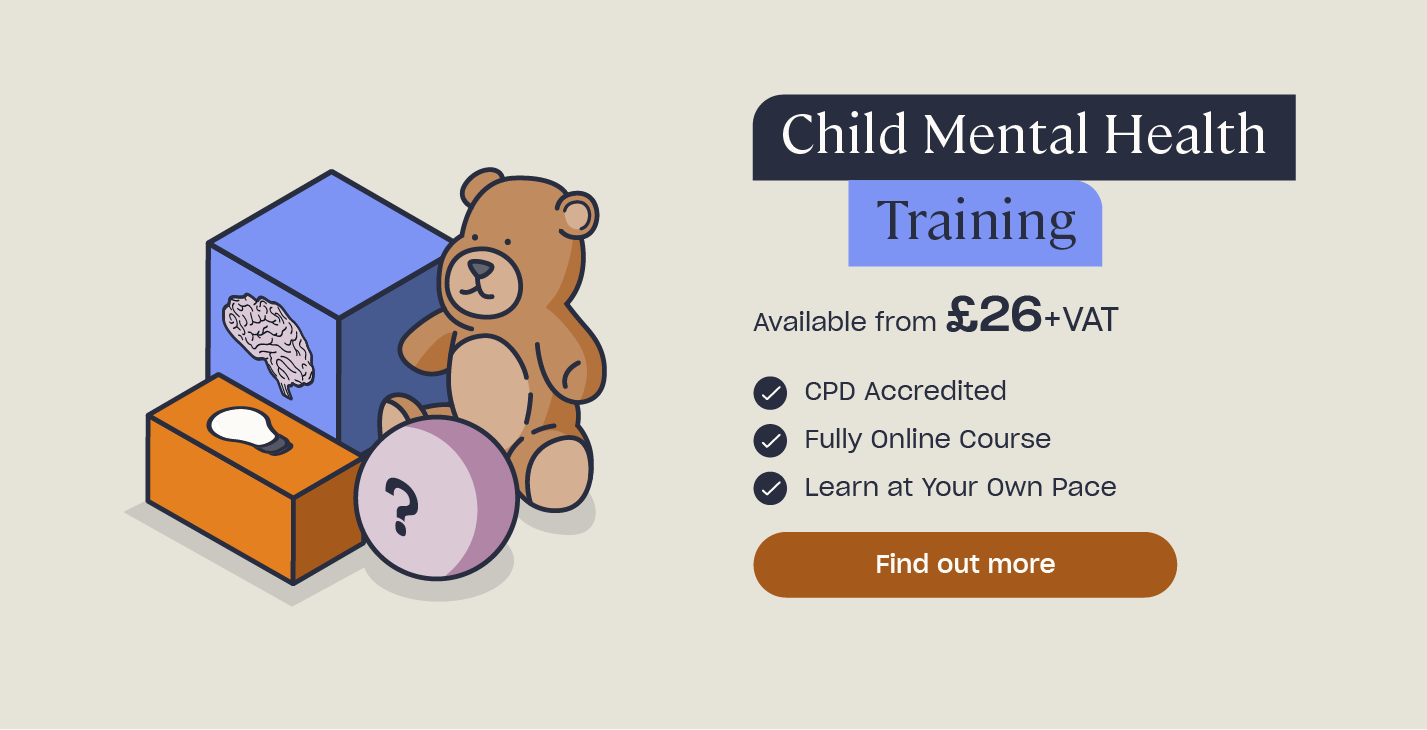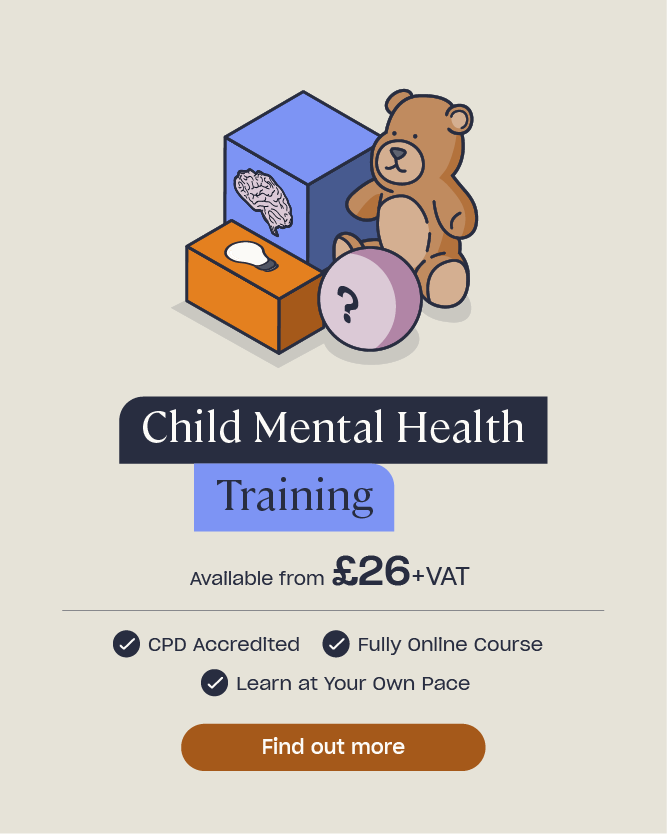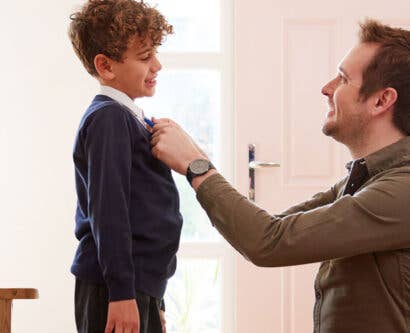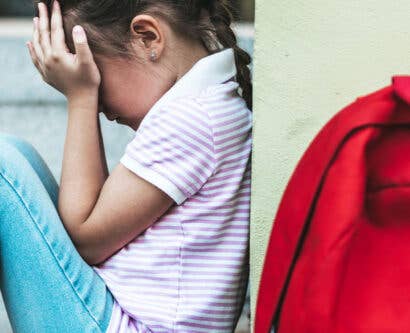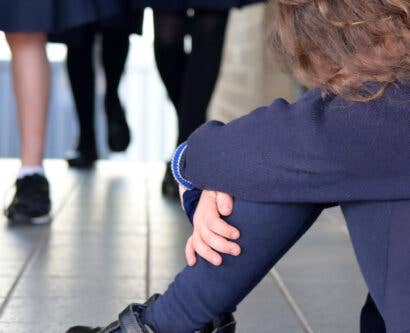How to Help a Child with Depression
In the last three years, the likelihood of young people having a mental health problem has increased by 50%. In particular, depression is one of the most common child mental health disorders, estimated to be suffered by 1-3% of all children in the UK. Undeniably, these statistics are severely concerning.
Although young people have been instrumental in the recent rise in opening important conversations around mental health, helping to reduce the stigma surrounding it, it can still be confusing for a child to identify when they’re struggling with their own mental health and difficult for them to open up about this. Thus, it’s vital that adults have the knowledge and understanding to look out for young people’s wellbeing and offer the right support.
In this article, we will explain what depression is in children, what can cause this mental health disorder, outline some of the signs of depression in children, and offer advice on how to help children who may be suffering from depression.
What is Depression in Children?
Depression in children is a mental health and mood disorder that leads to feelings of sadness, irritability, or hopelessness that may be intense or prolonged, can interfere with everyday activities and reduce quality of life.
Every child has emotional ups and downs, as we all do, but this is normal. There is usually a reason for these mood swings and they are only experienced temporarily before the child begins to feel better again.
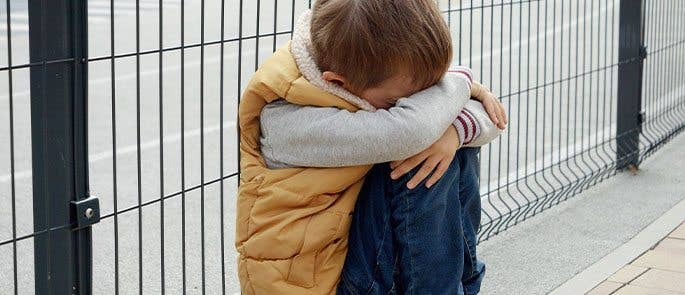
Depression in children is different to this. It creates an abnormal pattern of emotion whereby a young person may experience lingering feelings of sadness and hopelessness that prevents them from finding interest or pleasure in things they usually enjoy, can disrupt daily activities such as sleeping or eating, may hinder their relationships, and can even cause suicidal thoughts.
It’s important to note that depression in children can differ to that in adults. Whereas adults typically associate depression with low mood and a loss of energy, children often display symptoms more in outbursts of anger or irritability. Furthermore, although adult depression frequently causes a withdrawal from all relationships, children experiencing depression have sometimes been known to isolate themselves from adults whilst maintaining contact with close friends. As a result, child depression can unfortunately often be dismissed as teenage ‘moodiness’ and therefore not identified or acted upon soon enough.
To learn more about depression, along with various other common mental health disorders, read our article on What are the Different Types of Mental Health?
Causes of Childhood Depression
The cause of depression in a child can be very difficult to identify as, whilst the condition can be triggered by one particular source (such as a difficult event) it can also be developed as a result of a mixture of factors or simply due to a genetic disposition. Thus, unfortunately there is often no clear ‘cause’ of depression in children.
Having said this, one or more of the following factors can increase the risk of childhood depression:
- Genetics and family history – Children with close relatives who have experienced depression or other mental health disorders are more likely to develop the condition themself.
- Physical illness or injury.
- Stressful or adverse life events – Such as a parent’s separation/divorce or a bereavement.
- Substance use.
- Bullying or exposure to other traumatic experiences or abuse.
- Problems with friends.
- Struggling with identity – Such as sexuality or gender.
- Puberty.

As mentioned, any combination of these factors can increase the risk of a child developing depression, but equally there may not be an identifiable source. Sometimes childhood depression can occur as a result of seemingly random chemical imbalances or disturbances, so searching for a clear cause isn’t always helpful.
Most importantly, it’s critical that signs of depression in a child aren’t ignored or dismissed if there’s no identifiable origin of the issue. A child who appears to have an ideal life and upbringing can just as easily develop depression as someone with known childhood difficulties.
What are the Signs of Depression in Children?
Childhood depression doesn’t always have one set of symptoms as it can present itself differently in each child. As a result, depression in children can frequently go undiagnosed and untreated as it’s hard to identify and is often passed off as standard emotional or psychological change that occurs during growth.
There are a number of signs of childhood depression to look out for, however, as these symptoms are commonly displayed by a child experiencing this mental health condition:
- Changes in appetite – This can include either an increase or decrease in appetite.
- Changes in sleep – Childhood depression can cause sleeplessness or, conversely, excessive sleep.
- Continuous feelings of sadness or hopelessness.
- Increased irritability.
- Difficulty concentrating.
- Experiencing feelings of worthlessness and low self-esteem – You may hear a child speaking negatively of themself more frequently if they are struggling with depression.
- Increased sensitivity, perhaps to rejection.
- Loss of interest in hobbies or passions.
- Complaining of physical pain, such as headaches or stomach aches, that don’t respond to medication.
- Reduced sociability and withdrawal from relationships.
- Thought of self-harm or suicide.
- Crying or emotional outbursts.
- A general change in their demeanour or mood that is intense and prolonged.

As mentioned, every child will experience depression in varying ways. Thus, children may display differing symptoms at different times and in different settings. Whilst some children with depression are able to continue to function well in structured environments, others will display a more noticeable change.
For teachers and safeguarders, there are a number of school specific signs of childhood depression in addition to those above that it is worth looking out for. These include:
- A reduced effort in school work and assignments.
- Having trouble concentrating in the classroom.
- Failure to turn in homework.
- Receiving lower grades than previously.
- Withdrawing from school friends or classroom activities.
- Missing school days or becoming frequently late.
Unfortunately, despite improvements in recent years, there still remains some stigma around mental health disorders which can result in myths surrounding mental health disorders being commonly mistaken as fact. To supplement the information above, and ensure you’re ideas surrounding depression are correct, read our article on Mental Health Myths vs Facts: What are the Realities?
Helping Children with Depression
Treatment of depression in children is similar to that of adults. It usually includes psychotherapy (most often counselling and Cognitive Behavioural Therapy) and sometimes medication, such as antidepressants, if the symptoms are severe and don’t appear to improve with therapy alone.
Whilst these are the medical treatments that a child experiencing depression may undertake, there are also many ways in which you as a parent, teacher or someone responsible for safeguarding can help to support a child who is struggling with depression.
Want to Learn More?
Our Child Mental Health Training provides a more in depth and detailed understanding of child mental health. It explains some of the most common mental health disorders, how you can identify these, and ensures you are confident in your ability to support any child who may need it.
Supporting a child with depression can be difficult as often adults feel that a child’s struggles with mental health is their fault or they want to know exactly what’s brought it on. Whilst this is understandable, it’s most important to be there to support and reassure the child in an unconditional and non-judgemental way.
Talk to Children About Mental Health
Suffering with mental health as a child can be extremely confusing as they may not fully understand what’s happening to them, why they feel the way they do, and what has brought about the change. Thus, having open conversations about mental health and various forms of mental health disorders can help to provide some clarity and reassurance to a child.
Additionally, giving young people opportunities to open up is one of the most important things an adult can do to help support their wellbeing. Even if you can’t necessarily fix a child’s struggles with mental health, you can help them to feel heard and understood which is often valuable in itself in helping them to cope.
How to explain mental health to a child and how to talk about depression
Although it’s extremely beneficial, talking to children about mental health isn’t always easy. You may not know how to bring up such a topic, when the best time to do so is, and may be afraid of making things worse or saying the wrong thing.
It’s important to remember that children don’t always need you to get it perfectly right, it’s just important that they know that you’re there for them.

It is often easier to talk while doing an activity, as this can give something else to focus on in addition to the conversation and thus takes some of the pressure off and can help it to feel more natural.
Furthermore, it can be helpful to start the conversation indirectly by introducing the topic of feelings in a more subtle way than diving straight into mental health as a concept. Perhaps start by asking a child what the best and worst parts of their day were, what challenges they’ve faced recently, or how they’ve been feeling in general.
Finally, if a child is struggling with their mental health, it can be useful for you to find out directly from them how they’d like to be supported rather than just assuming ways you can help. Try asking gentle questions such as those below:
- How can I support you through this?
- Do you want to talk about how you’ve been feeling?
- Is there anything you need or would like from me?
- What was the biggest problem you faced today and what would help you face it?
Spend Quality Time with the Child
Depression can be an extremely lonely condition, so it’s more vital than ever that you remain fully present for the child. Despite one common symptom of childhood depression being withdrawal from relationships or increased isolation, it’s essential that a child with depression remains aware that they have a strong support system around them. Thus, ensure you’re taking an active interest in the child’s life, asking them questions and suggesting doing activities together that they may enjoy.
Create a Positive and Safe Environment
Nurturing an environment of positivity, warmth and safety, whether that’s at home, school or elsewhere, can go a long way to helping a child suffering with depression to feel more relaxed and supported. To create this environment, ensure you’re vocalising your love and support frequently, have the child’s favourite things around them, and minimise any external disturbances or stressful surroundings that could disrupt the child’s emotions further.

Encourage Healthy Habits
Many of the symptoms of depression include a disruption to everyday activities such as sleeping and eating. A child with depression is likely to experience an increase or decrease in appetite, restlessness, or insomnia. It is a well known fact, however, that maintaining healthy daily habits goes a long way to supporting good mental wellbeing as well as physical health. Thus, it’s in a child’s best interest to try and stick to regular eating and sleeping habits as well as staying active.
As a parent, teacher or safeguarder, you can support a child with depression by monitoring any changes in their everyday activities and trying to keep them on course, for example by providing regular, nutritious and tasty meals for them or suggesting you participate in energising activities together.
To learn more about the benefits of staying active on mental health, read our article on The Benefits of Exercise on Mental Health.
Look After Yourself
Being a witness to childhood depression, especially if it’s in a child you’re close to or responsible for, can be distressing and helping them can become an all-encompassing factor in your life. Whilst it’s important to support a child with depression in any way you can, it’s also vital to remember that if you’re sacrificing your mental or physical health, you won’t be able to provide the best support. As a result, it’s essential that you continue to prioritise your own wellbeing in addition to that of the child. This will also make it easier to maintain a positive and safe environment for the child, as mentioned above.
Childhood depression is a complex mental health disorder that manifests differently for each individual, and can therefore be difficult to identify and treat. Because of its intricate nature, it can be extremely confusing and distressing for a child to experience depression, and the consequences of this illness can be severe. Thus, it’s vital that adults are aware of the signs and understand ways to support children suffering with this condition.
Further Resources:
- How to Support Children with Attachment Disorder
- How to Teach Children About Healthy Relationships
- What are the Different Types of Mental Health?
- Mental Health Myths vs Facts: What are the Realities?
- Child Mental Health Training


